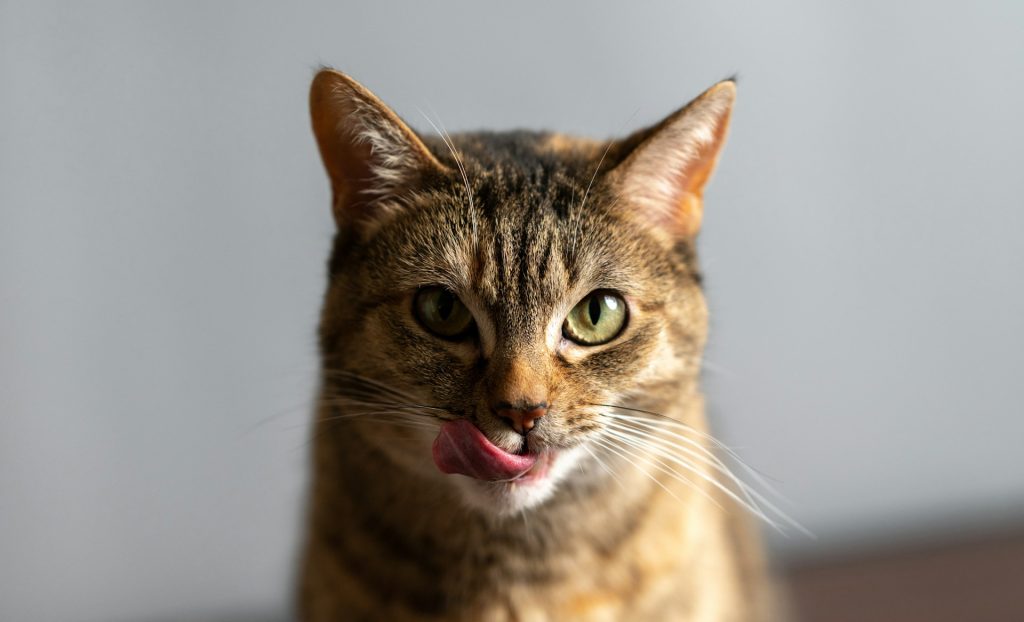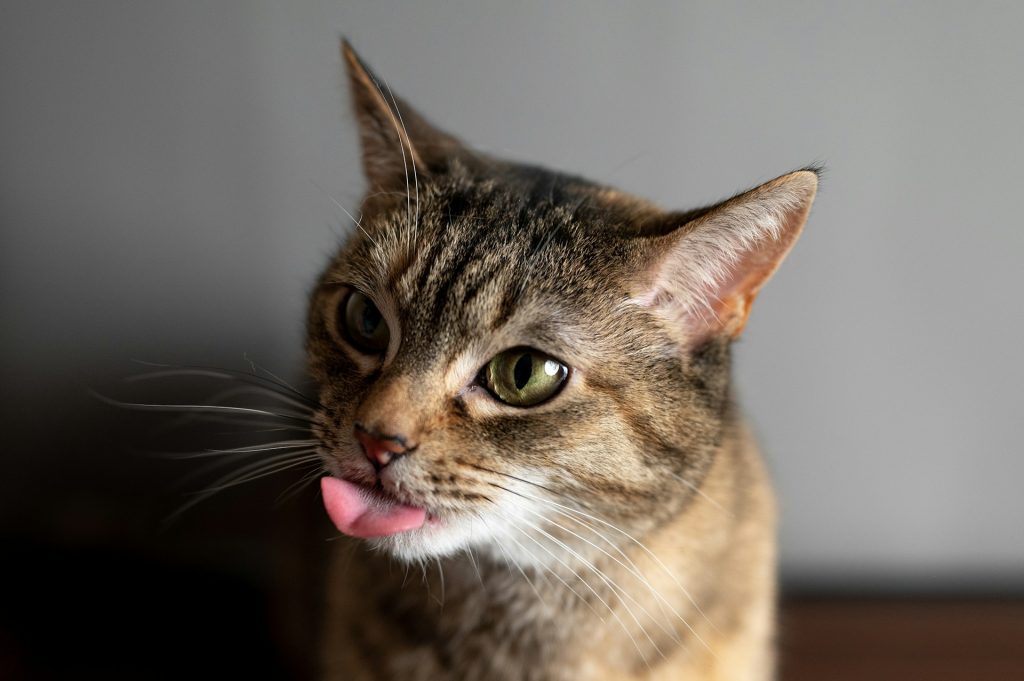Table of Contents
Understanding whether cats hold grudges is a nuanced endeavor, as feline companions exhibit several behaviors that might suggest they do. Despite popular belief, the relationship with your cat does not suffer from long-held resentments as humans experience. A cat’s short-term memory lasts about 16 hours, which means most daily grievances are likely forgotten after this period. However, a cat’s long-term memory can retain significant experiences for much longer, potentially affecting its behavior and attitudes toward certain stimuli for extended periods.
Observing signs that your cat may be upset, such as flattened ears, urinating or defecating outside the litter box, or giving you less attention, are indicators of displeasure rather than grudges. It is crucial to give your cat the space and time to return to its normal disposition, as forcing interaction can prolong negative feelings. Understanding these memory frameworks can illuminate how long a cat might act differently toward you after an upsetting event.
Exploring the Complexity of Cat Emotions
Cats’ emotions are intricate, and while they do not hold grudges in the human sense, their short-term and long-term memories play a role in how they interact with their environment and human caretakers. Recognizing this complexity is key to fostering a positive and understanding relationship with your cat.
The Concept of Grudges in Cats
The idea that cats hold grudges is a debate among pet owners and animal behaviorists. While it’s clear that cats remember negative and positive experiences, their long-term memory is more likely to affect their behavior over time than the capacity to nurse a grudge. Traumatic experiences, particularly those that occur at an early age, can have lasting effects, but cats generally do not contemplate past events with the intent of holding a grudge.
Signs That Your Cat May Be Upset With You
If your feline companion shows unusual behavior, it could be a sign of displeasure. Watch for changes in interaction such as avoidance, hissing, or swatting, which can indicate that your cat is upset. These behaviors are more about immediate feelings rather than a sustained grudge, reflecting a temporary state of distress.
Body Language Clues
Pet owners can glean much from the body language of their cats. Felines communicate volumes through their posture, tail movements, and ear positions. A tail lashing back and forth, ears pinned back against the head, and an arched back can signal irritation or fear, suggesting your cat may be upset with its current situation or a recent interaction.
Changes in Normal Behavior
Cat and pet owners alike should be attuned to deviations from their furry friend’s standard routines. These alterations may include changes in eating habits, sleeping patterns, or litter box usage. When a cat shows such changes, it may indicate stress or discomfort rather than a lasting grudge against its owner.

Cognitive Abilities and Cat Memories
The cognitive abilities of cats are complex, involving both short-term and long-term memories. These memories influence how cats react to and learn from their experiences. Understanding the intricacies of feline memory can help pet owners better navigate their relationship with their furry friends, particularly in circumstances where the cat’s behavior has changed after a negative experience.
How a Cat’s Memory Influences Their Grudges
While older cats may seem to hold grudges due to their memories, it is essential to recognize that their behavior is more likely influenced by the lasting impact of earlier experiences rather than an intentional grudge. Memory plays a crucial role in shaping a cat’s response to various situations.
Short-Term vs Long-Term Memory in Felines
Cat owners should consider the differences between short-term and long-term memory when understanding their furry friend’s behavior. While a cat’s short-term memory is relatively brief, only lasting a few hours, its long-term memory can hold onto significant experiences. These memories can influence a cat’s responses and habits, often mistaken for grudges.
The Role of Associative Memory in Grudge-Like Behavior
Associative memory plays a crucial role in the behaviors of cats that can be perceived as holding grudges. A cat that remembers something bad happening, such as being sprayed with a water bottle or having someone step on her tail, may develop negative associations with similar situations or individuals. These associative memories are powerful, influencing a cat’s reactions and attitudes based on past experiences, which can sometimes appear as if the cat bears a grudge.
The Duration of a Cat’s Displeasure
Deciphering the emotional state of a cat can be challenging, as the cat’s body language and protective mechanisms are often subtle. However, these cues can indicate emotional resentment, which varies in duration. The length of a cat’s displeasure depends on the individual cat and the situation, but understanding their emotional cues, such as a tucked tail or flattened ears, can provide insights into their feelings and how long they might remain upset.
Factors That Affect How Long Cats Hold Grudges
While it’s a common belief that cats don’t hold grudges, the duration of a cat’s upset behavior can be influenced by several factors. The intensity of the incident, the cat’s personality, and its past experiences all play a role. Some cats may quickly move past a negative event, while others, especially if consistently subjected to unpleasant experiences, might bear grudges for longer periods. Ultimately, cats are individuals, and their responses will vary.
Real-Life Examples of Cat Grudges
Real-life observations suggest cats may display grudge-like behavior, albeit for a limited time. Anecdotal evidence from pet owners describes cats avoiding certain areas or people after a negative experience. For instance, a cat may steer clear of a room where it was accidentally shut in, or avoid interactions with someone who inadvertently stepped on its tail. These behaviors, rooted in associative memories, highlight a cat’s capacity to react based on past incidents.
Strategies for Reconciling With Your Feline Friend
Reconciling with a cat after a negative interaction involves patience and understanding. Cats are highly sensitive to their environments, and creating a calm environment can help rebuild trust. Pet owners should respect their cat’s space, especially if they hide under the bed, and ensure their food bowls and other resources are easily accessible. Avoiding actions that may create negative associations is key to maintaining a harmonious relationship.
Tips for Restoring Peace With a Grumpy Cat
If a cat displays signs of displeasure, it’s important to remain calm and give the cat time to adjust. Avoid forcing interactions, and offer treats and engage in gentle play to encourage positive associations. Consistency and patience are essential for helping a grumpy cat feel secure again.
Calming Techniques
Calming a grumpy cat can be achieved through various techniques. Softly speaking to the cat, offering favorite treats, and providing a safe hideaway can all contribute to reducing stress. Additionally, pheromone diffusers and gentle petting, when the cat is receptive, can promote relaxation and help alleviate any tension.
Environmental Enrichment
Environmental enrichment is vital for a cat’s well-being, especially after a negative experience. Providing stimulating toys, scratching posts, and opportunities for climbing can help distract and entertain the cat. Creating engaging surroundings helps reduce stress, prevents boredom, and can divert attention from past negative events.
Preventative Measures to Avoid Future Grudges
To circumvent future negative associations that could be interpreted as grudges by cats, pet owners can implement preventative strategies. Ensuring that a cat’s tail is never pulled or stepped on, and maintaining a consistent and safe distance when walking can help. Keeping the food bowl in a secure location where the cat feels comfortable is also key. Creating a calm environment, avoiding loud noises or sudden movements, and offering gentle petting only when the cat seeks affection are ways to rebuild trust and show that you never intend to harm them.
The Science Behind Feline Forgiveness
While cats are too sensitive to their environments, they do not hold grudges like humans. Instances of hiding under the bed after an accidental tail step are more about immediate discomfort than long-term resentment. Cats’ cognitive abilities allow them to associate experiences with their outcomes, but once the negative stimulus is removed and replaced with positive interactions, cats can move past the incident. Understanding cat cognition is crucial for owners looking to rebuild a bond marred by a negative event.
Do Cats Forgive and Forget, Or Do They Remember Forever?
Cat owners often wonder whether their feline friends harbor long-term resentment. While cats communicate displeasure, their associative memory is more about linking particular stimuli to experiences rather than holding onto those feelings indefinitely. A cat’s cognition does not support the idea that cats hold grudges in the human sense. With gentle petting and consistent positive engagement, the bond with their feline can be restored, indicating that cats can move past negative experiences.

Assessing Your Relationship With Your Cat
Assessing the relationship with a cat involves keen observation and understanding of feline behaviors. A cat that has moved on from a negative event will display normal behaviors, such as seeking attention and being playful. Pet owners must recognize the signs of a cat’s contentment and forgiveness to ensure a healthy and happy coexistence. It’s about creating a nurturing environment where trust can be re-established after any mishap.
Understanding When Your Cat Has Moved On
Understanding when a cat has moved on from a negative experience is key to maintaining a harmonious relationship. Signs such as returning to normal eating habits, seeking out affection, and participating in regular play indicate that any previous upset has been forgotten. Cat owners should take these behaviors as indicators that their pet no longer associates them with the negative experience, and the relationship can continue to grow and flourish.
Nurturing a Strong Bond After a Grudge
To nurture a strong bond after a cat holds a grudge, consistency in affection and care is crucial. Spending quality time engaging in your cat’s favorite activities, respecting their space, and being attentive to their needs can all contribute to a strengthened relationship. It’s about reassuring your cat through your actions that they are safe and loved, thereby fostering a deep and trusting bond that can withstand the occasional mishap.
How Long Does a Cat Hold a Grudge? – Unraveling the Truth
The enigmatic nature of felines often leaves their human companions pondering, “How long does a cat hold a grudge?” Observations suggest that while cats may not be grudging in the human sense, they do exhibit behaviors that can be interpreted as such. If a cat is upset, typical signs might include hissing or growling, giving you the cold shoulder, or displaying defensive behaviors. These reactions, however, are often short-lived. A cat’s short-term memory lasts about 16 hours, meaning that as long your cat is angry today, they may have forgotten the cause by tomorrow.
Cats can associate actions with negative experiences, which may influence their behavior toward an individual or situation for an extended period. For instance, if a cat is mad after being startled by a loud noise near their litter box, they may avoid it and require careful reintroduction to the area. Offering treats and taking time to bond with your cat can help mitigate any tension, suggesting that a cat may react strongly at the moment, their capacity for holding grudges is more reflective of momentary displeasure rather than prolonged resentment.

Hi, I’m Zoey, a devoted mom to two charming Siamese cats. My passion lies in assisting fellow pet owners in providing optimal care for their cats. On CatsEuphoria, I share practical tips and relatable stories, inviting you to join me in appreciating the authentic bond between humans and our beloved feline companions.




